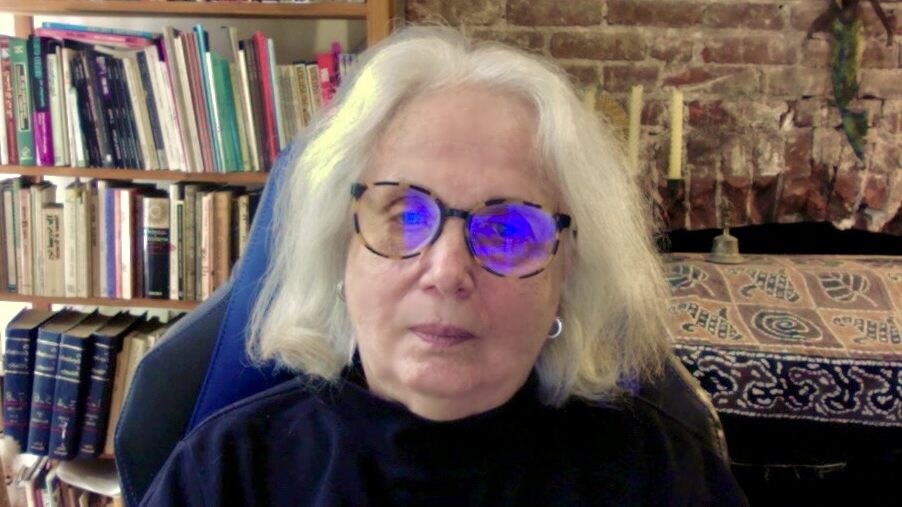How should a faculty member who has taught at Parsons School of Design and Eugene Lang College, (both part of The New School), for the past 43 years expect to be treated? What is an appropriate gesture of gratitude and respect to show that the university recognizes and values the contributions its faculty makes?
This is how I was treated: Despite working at the university since 1979, The New School refused to acknowledge I had been hired earlier than 1994, effectively erasing my first 15 years of employment.
When I was hired, the maximum number of courses that the university allowed part-time faculty to teach was six per academic year. During those 15 years, I taught a full load of six courses (sometimes seven with special permission) and often 1 or more summer sessions, adding up to teaching well over 100 classes and more than 2,000 students.
Because there were very few full-time faculty during those early years, I served on the Parsons Curriculum Committee, the College Council, New School and Parsons Honorary Degree Committees, President’s Faculty Advisory Committee, Foundation Year Advisor Search Committee, Liberal Studies Chair Search Committee and the Faculty Leave Committee.
Along with Dr. Beatrice Banu, coordinator of Parsons Foundation philosophy, who would later become the Dean of Eugene Lang College, I helped produce a prospectus and syllabus for the original coordinated Parsons Foundation Year Program. I also co-authored a project to expand multicultural content, both on a Foundation Year and Upper Division level, with Michael Kendell, and for many years was the faculty advisor for the Eugene Lang College student journal.
The excuse the school gave for not correcting my hiring date was that it reflected “the best of their knowledge.” You can imagine how I felt when the university informed me that it was up to me, not the school, my employer, to produce evidence of my employment, and to do it by showing a pay slip from 1979.
After going through my files, among other proof I submitted, I found teaching contracts dating from 1982, and this last year when the New School catalogs were published online my name was included in the 1980 catalog teaching Foundation Year philosophy. But none of this was enough to convince the university to change my hire date and acknowledge the many years of service I have given to The New School. Finally, after several years of trying to get my hire date corrected, I contacted our union leadership.
During a grievance meeting, representatives of The New School didn’t even know that I have been teaching credit courses from the time I was hired, which made me question if they had even looked at my supporting materials or my vita which was on file.
Unfortunately, this is an example of how longtime faculty members who contribute so much to The New School are treated. It was only through the intervention of union representatives that the issue was finally resolved in my favor.
Sadly, the fact that I had to fight to get the university to acknowledge my service will not come as a surprise to the many longtime faculty at The New School. The university disrespects us in myriad ways.
For one example, the university skyrocketed our healthcare costs during the darkest days of the COVID pandemic. A professor at The New School reported that her husband’s insulin, previously free, spiked to $250 every three months, and that one of her own medications for multiple health conditions, including stroke prevention, was also no longer covered. Our union had to file a grievance to force the university to bring these costs down to reasonable levels.
Another example is that I, like many faculty, have to retire before I can access my retirement account and cannot even take out a loan against it. This has been particularly difficult for me during COVID when, due to health considerations, I have had to take unpaid leave. Faculty should be entitled to access their money at age 59½.
For the past six months, part-time faculty have been in negotiations with the New School for a new contract. The university’s negotiation team delayed and stalled for months, and recently the New School hired an outside counsel as its lead negotiator, signaling that they would rather invest thousands of dollars in a corporate law firm than pay part-time faculty equitably.
The university’s responses to part-time faculty proposals range from inadequate to downright cruel by, for example, proposing to eliminate rights we already have in our contract. As a result, the part-time faculty are taking a strike authorization vote beginning October 31. I urge my co-workers to vote ‘YES’.
The New School’s stated mission is to educate students who will make “the world a better and more just place.” But how just is The New School’s treatment of the faculty who implement this progressive education?
Susan Sherman is an award-winning poet, playwright, essayist, and a founding editor of IKON magazine who has published seven collections of poetry including The Light that Puts an End to Dreams, a Publishing Triangle Audre Lorde Award for Lesbian Poetry finalist; Nirvana on Nineth Street, short fiction; and a critically acclaimed memoir, America’s Child: A Woman’s Journey Through The Radical Sixties. She has taught at the New School (Parsons School of Design and Eugene Lang College) for 43 years.








Leave a Reply